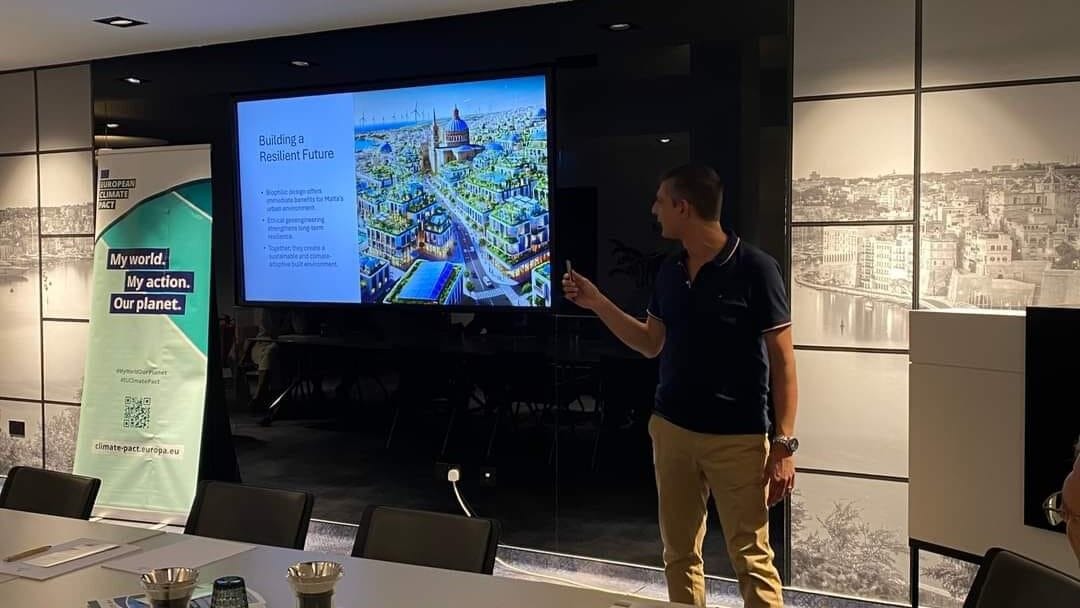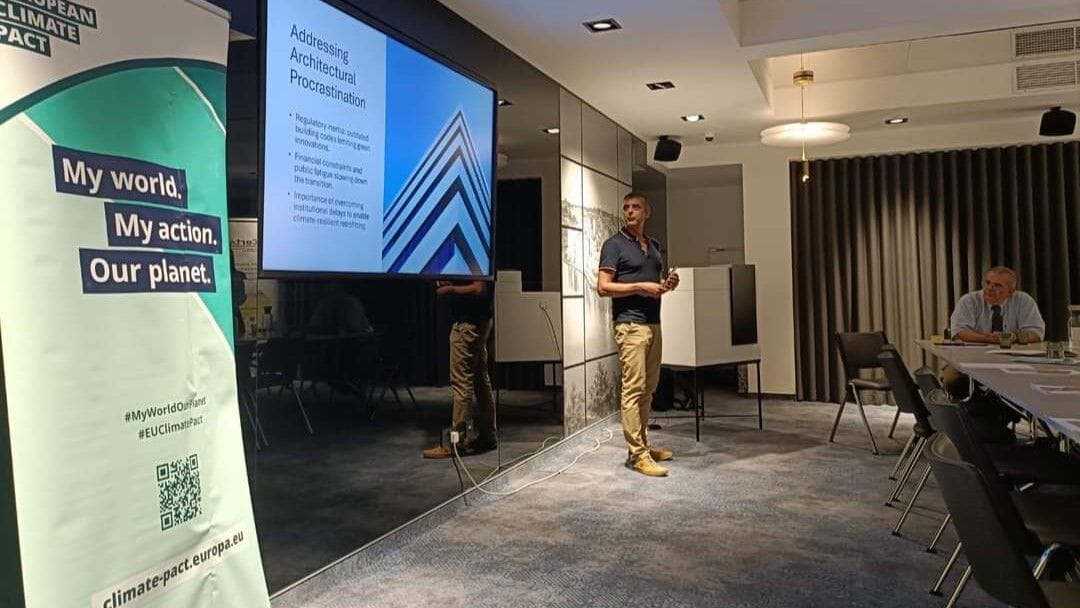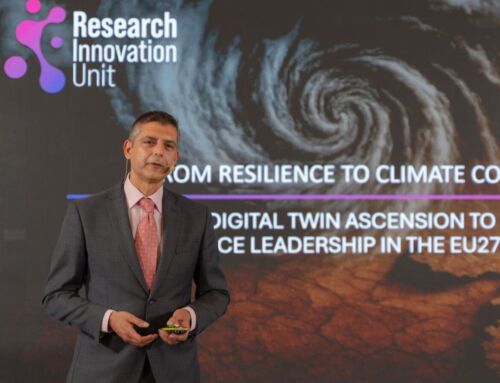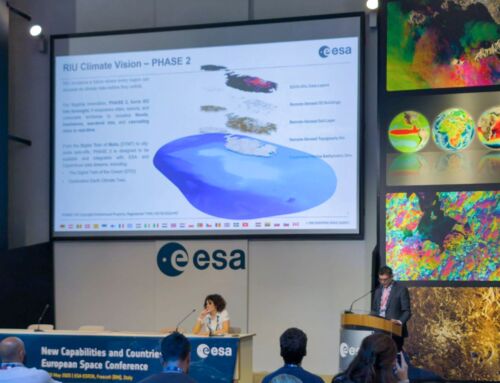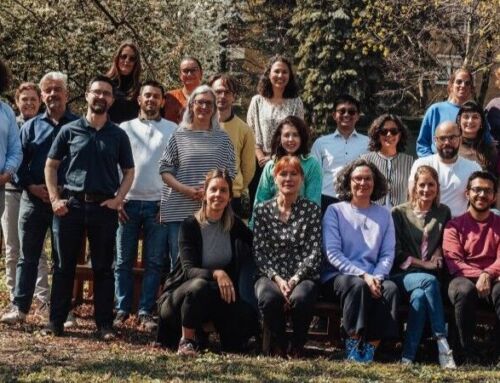On Friday, October 18, 2024, the Malta Intelligent Energy Management Agency (MIEMA) hosted at the Valletta Design Cluster a critical stakeholder engagement event titled “Energy Transition: The Role of the Building Sector in Malta.” The event by the Climate Pact and crossCert project focused on the future of energy performance in Malta’s building sector. Thought leaders, policymakers, and industry professionals gathered to discuss innovative energy performance certification (EPC) reforms, biophilic design strategies, and how ethical geoengineering can contribute to climate resilience.
The event marked a significant milestone in Malta’s journey towards energy-efficient construction and decarbonising its building stock. With a lineup of expert speakers, including Diane Cassar, Prof. Ing. Charles Yousif, Perit Amanda De Giovanni, Dr Hans Friederich, and Fabian Borg, the discussions focused on policy reforms, technical innovations, and practical solutions to overcome the challenges facing Malta’s building sector.
The EU Climate Pact and CrossCert: Building a People-Centred EPC System
The first session, moderated by Diane Cassar, Climate Pact Country Coordinator for Malta, set the stage for the discussions with a presentation on the EU Climate Pact. Cassar introduced the ongoing initiatives to promote energy transition in Malta through improved EPC systems and stakeholder engagement. She explained the role of crossCert, a project designed to create a more reliable, practical, and people-centred EPC system across Europe.
In her talk, Cassar highlighted the challenges of the existing EPC framework, which often relies on subjective assessments by certifiers. This results in inconsistencies in energy performance ratings across different types of buildings. The crossCert project aims to address these gaps by introducing new benchmarks and guidelines for EPC testing that can be applied uniformly across the EU. She emphasised the importance of making EPCs more user-friendly, ensuring that experts and non-experts can easily understand the data. A key takeaway from Cassar’s presentation was the need to integrate real-time energy performance monitoring into the EPC process, moving beyond static, one-time assessments.
Valletta Design Cluster: A Case Study in Sustainable Rehabilitation
Following Cassar’s presentation, Perit Amanda De Giovanni from the Restoration Directorate gave an insightful tour of the Valletta Design Cluster as a case study in sustainable urban development. The project transformed the old civil abattoir (Il-Biċċerija) into a vibrant community hub. It exemplifies how Malta can preserve its architectural heritage while upgrading buildings to meet modern energy performance standards.
De Giovanni discussed the sustainable conservation approach applied to the project, emphasising how materials were chosen to respect the building’s historical value while integrating green technologies such as rooftop gardens and photovoltaic panels. She detailed how the green roof garden provides a natural insulation barrier, cooling the building and reducing energy consumption. Moreover, the engagement of the local community in the design process was a crucial factor in the project’s success.
This site visit reinforced the message that Malta’s urban regeneration projects must embrace environmental sustainability and community engagement, ensuring that heritage buildings can be retrofitted to meet energy performance standards without losing their cultural significance.
EPC Benchmarking and the Path to Decarbonisation
Prof. Ing. Charles Yousif delivered the following presentation from the Institute for Sustainable Energy at the University of Malta. Yousif’s talk, titled “EPC Benchmarking: Driving Real Estate and Building Renovation Towards Low-Energy Standards,” underscored the pivotal role EPCs play in decarbonising the building sector. He detailed the 2024 EU Energy Performance of Buildings Directive (EPBD), which sets stringent new requirements for residential and non-residential buildings.
Yousif highlighted the key provisions of the updated EPBD, including the mandatory renovation of worst-performing buildings by 2030 and the phasing out fossil fuel-based systems in new buildings by 2040. He stressed the need for Malta to align its EPC standards with these new requirements, particularly in ensuring that new buildings meet net-zero energy standards. Yousif also introduced Technical Document F (2024), which sets minimum performance requirements for building elements like roofs, walls, glazing, and renewable energy integration.
His presentation revealed that over 70% of buildings in Malta fall below the energy performance Class A threshold, indicating significant renovation potential. However, he also noted the gaps in current EPC assessments, which rely on visual inspections and lack the precision of technological assessments like thermal imaging or air quality monitoring. Yousif called for a more data-driven approach to EPCs, with benchmarking tools to track energy performance across different building types.
Policies and Best Practices for EPC System Reform
Perit Noel Ellul from the Building & Construction Authority (BCA) followed with a discussion on the policies and best practices needed to improve the EPC system in Malta. He outlined the need for further alignment with the EPBD and introducing new EPC software tools to automate parts of the certification process, reducing the reliance on manual assessments.
Ellul also spoke about the importance of creating more comprehensive training programs for EPC assessors. He emphasised that introducing continuing professional development (CPD) for assessors and regular updates to the EPC framework would help avoid potential biases and greenwashing in the certification process.
Bamboo: A Sustainable Construction Material for Malta
A key event highlight was a presentation by Dr Hans Friederich, EU Climate Pact Ambassador, who introduced bamboo as an alternative construction material. In his talk, Dr. Friederich discussed the ecological benefits of bamboo, including its rapid renewability, carbon sequestration capacity, and versatility in construction. He urged Malta’s construction sector to explore bamboo as part of its efforts to reduce the carbon footprint of buildings and support nature-based solutions for climate adaptation.
Biophilic Design: Greening the Future of Malta’s Building Sector
The final presentation, delivered by Fabian Borg, Head of the Research Innovation Unit, focused on the role of biophilic design and ethical geoengineering in Malta’s building sector. His talk, titled “Greening the Future: Biophilic Solutions for Malta’s Building Sector,” offered a roadmap for integrating nature-based solutions into Malta’s dense urban environments.
Borg explained how biophilic design, incorporating natural elements such as green walls, water features, and daylighting, can significantly reduce energy consumption while improving urban biodiversity and well-being. He presented examples of green roofs and facades, which help mitigate the Urban Heat Island effect, reduce cooling demand, and enhance the resilience of buildings to climate extremes.
Additionally, Borg introduced ethical geoengineering as a complementary approach, showcasing technologies like PV-powered outdoor dehumidification systems and microalgae biofilters for carbon capture and air purification. These innovations, he argued, can provide long-term resilience for urban environments, particularly as climate conditions become more extreme.
Borg closed his presentation with a call to action for Malta’s building industry, urging developers, architects, and policymakers to embrace biophilic design and hybrid strategies that combine nature-based solutions with cutting-edge technology. He also highlighted the need for policy reforms that incentivise green construction and public-private partnerships to finance retrofitting projects.
Roundtable Discussion: Shaping the Future of EPCs in Malta
The event concluded with a roundtable discussion, where speakers and participants explored how Malta’s building sector can overcome the challenges of regulatory inertia, financial constraints, and public fatigue around energy-efficient retrofitting. Fabian Borg remarked on the need to shift EPC assessments from opinion-based grading to quantified, technology-driven evaluations. He emphasised the role of advanced diagnostic tools like thermal cameras, which provide accurate data on building insulation and air leakage.
A Path Forward for Malta’s Building Sector
The October 18th event underscored the critical steps Malta must take to decarbonise its building sector and lead the Mediterranean region in energy-efficient construction. With a strong focus on biophilic design, ethical geoengineering, and data-driven EPC assessments, Malta has the potential to create a climate-resilient and sustainable built environment.
Stay tuned for more updates as Malta implements bottom-up innovative strategies in its energy transition and climate adaptation.


